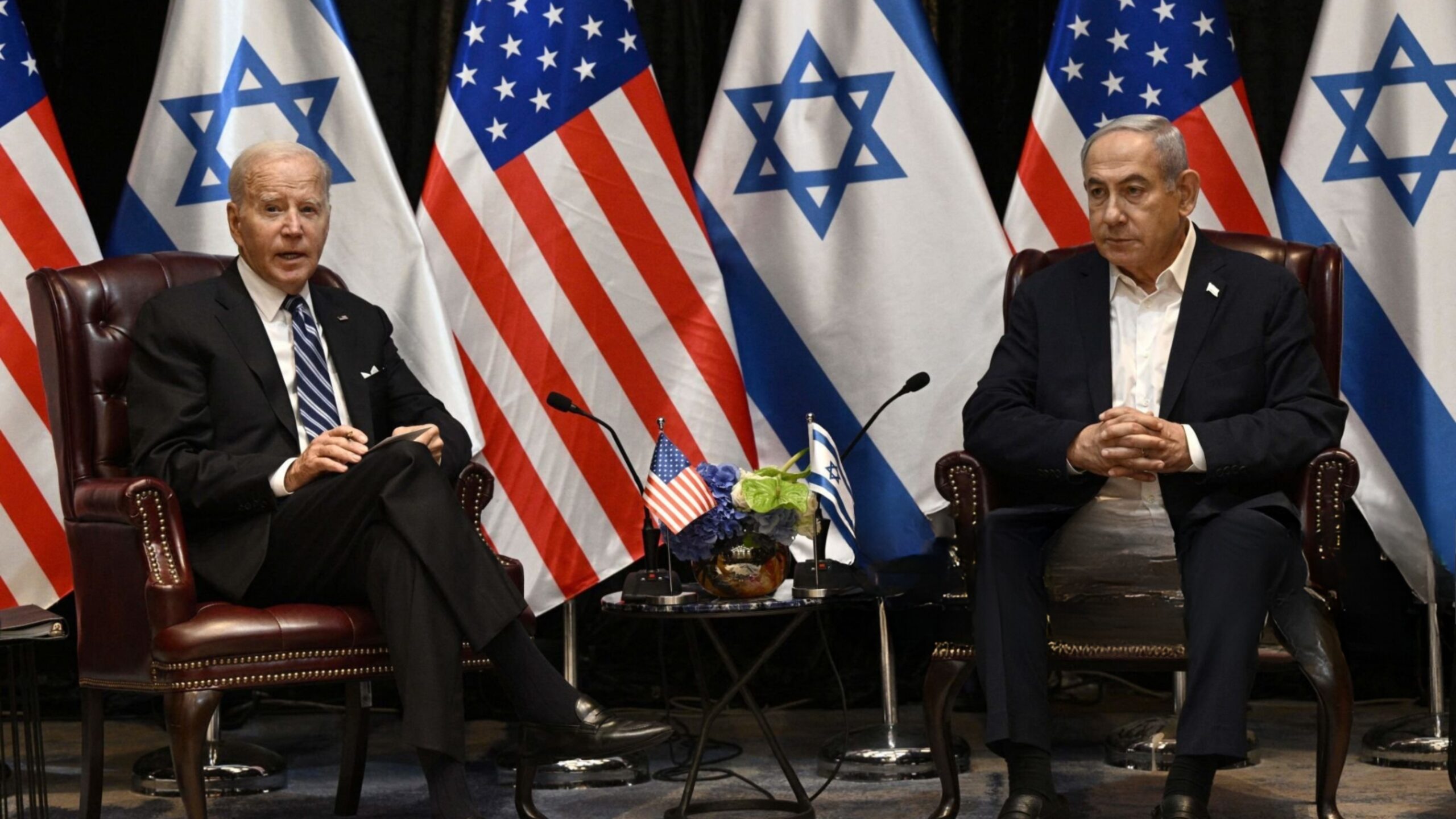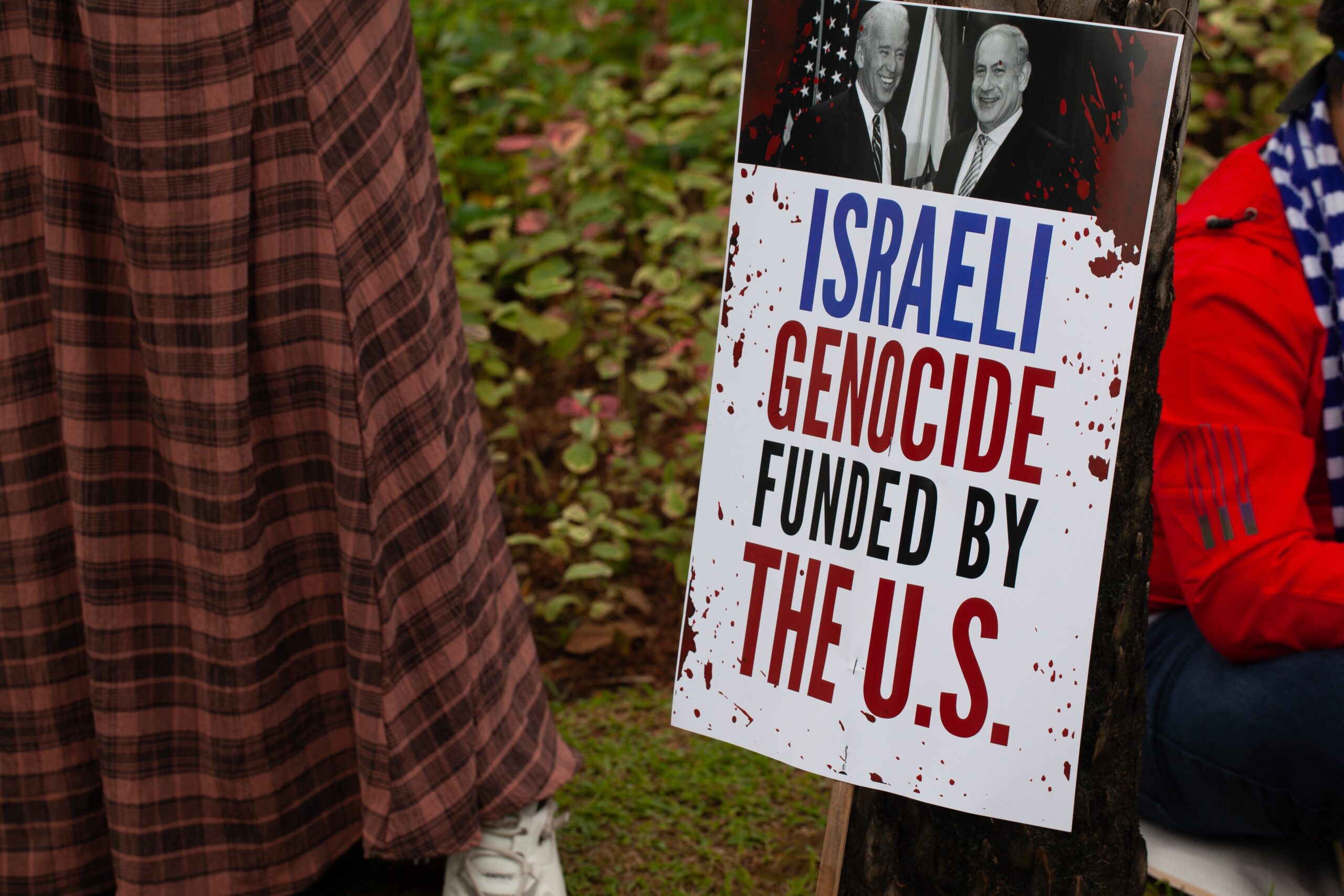Editorial note: This Opinion piece is reprinted from the UTech Jamaica student newspaper “USight News Vol.1”
By Tori-Ann Boothe
The ongoing conflict in the Middle East between Israel and Palestinian military resistance soldiers, Hamas, has brought international attention to the complex dynamics at play in the Middle East. Amidst the violence and suffering, one aspect that cannot be ignored is the United States of America’s significant support for Israel both politically and militarily.
This support has raised numerous questions about the extent to which Israel benefits from nepotism at the cost of the lives of Palestinians. The United States has been an Israeli ally, providing billions of dollars in military aid and diplomatic support every year. The unwavering support has enabled Israel to maintain a rigid military advantage over its adversaries and pursue its security objectives with relative impunity. However, it can be argued that this support encourages Israel to act with impunity, leading to human rights abuses and disproportionate responses to security threats.
Jewish Immigration to Palestine
During the French Invasion of the Arab East in 1799, Napoleon issued a proclamation granting Jews a homeland in Palestine under French protection. This was also an attempt to create a French presence in the region. Napoleon’s vision of a Jewish state in the region did not come to fruition until it was revived by the British. The Balfour Declaration of 1917 stated Britain’s support for a “national home for the Jewish people” in Palestine. The declaration was made in a letter from Britain’s- then foreign secretary Arthur James Balfour to Baron Rothschild, a leader of the British Zionist movement. A massive Jewish migration to Palestine began, fueled by Jews fleeing Nazism in Europe. Between 1918 and 1947, the Jewish population of Palestine grew from 6% to 33%. Palestinians were frightened by the demographic shift, and tensions grew, sparking the Palestinian rebellion from 1936 to 1939. Meanwhile, Zionist organisations continued to agitate for a Jewish homeland in Palestine. Armed Zionist militias began attacking the Palestinians, forcing them to escape.
Escalation of Violence in the Gaza Strip
The recent escalation of violence in the Gaza Strip, which has resulted in the death of 32,000 Palestinians and caused widespread destruction, has once again highlighted the consequences of the diplomatic relationship between Israel and major world powers including the United States and Britain. Israel’s continuous military bombardment of densely populated areas, media houses and residential buildings has raised concerns about international law and the excessive use of force. Despite calls from the international community, Israel has continued its military campaign with the help of the US.
How the US supports Israel
Israel’s ability to benefit from the power of the US undermines efforts to achieve a just and lasting peace in the region. By providing unconditional support to Israel, the major world power shields it from accountability for its actions and perpetuates a cycle of violence and instability. Diplomatically, the US has consistently defended Israel in international forums and has vetoed numerous United Nations resolutions critical of Israeli actions. Since World War II, the United States has provided more help to Israel than any other country, totalling more than $260 billion. Additionally, The US has provided Israel with advanced weaponry and technology, including fighter jets and missile defence systems. Supporters of Israel contend that it has the right to defend itself against terrorism and that US support is essential in maintaining security and existence. They claim that Israel faces serious security issues within the region and that its actions are justified by self-defence. Furthermore, they emphasise the similarities in principles and strategic interests that unite the US and Israel, arguing that US support for Israel is consistent with the country’s overall foreign policy goals in the Middle East.

Reevaluating Relationships with Israel
It’s essential to recognise that the war in Gaza is not solely a matter of self-defence but also a symptom of 7 decades of political and human crises. The ongoing blockade of Gaza, which has resulted in severe shortages of food, medicine and other essential goods, has exacerbated the suffering of the Palestinian population and contributed to the cycle of violence. Moreover, the root causes of the conflict, including the continued occupation and destruction of Palestinian territories and the denial of Palestinian Rights, must be addressed through meaningful diplomatic efforts and commitment to justice and equality for all parties involved.

